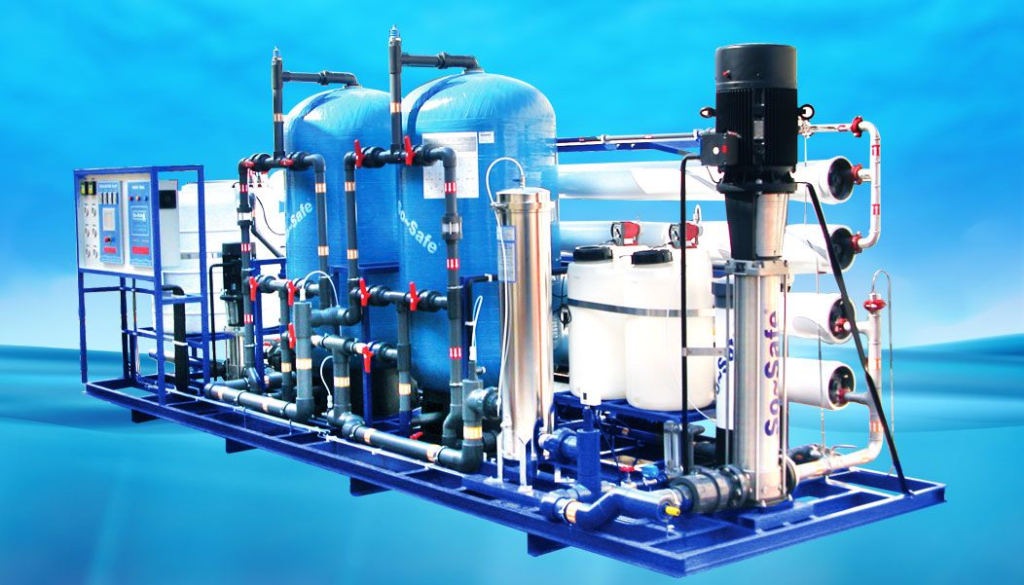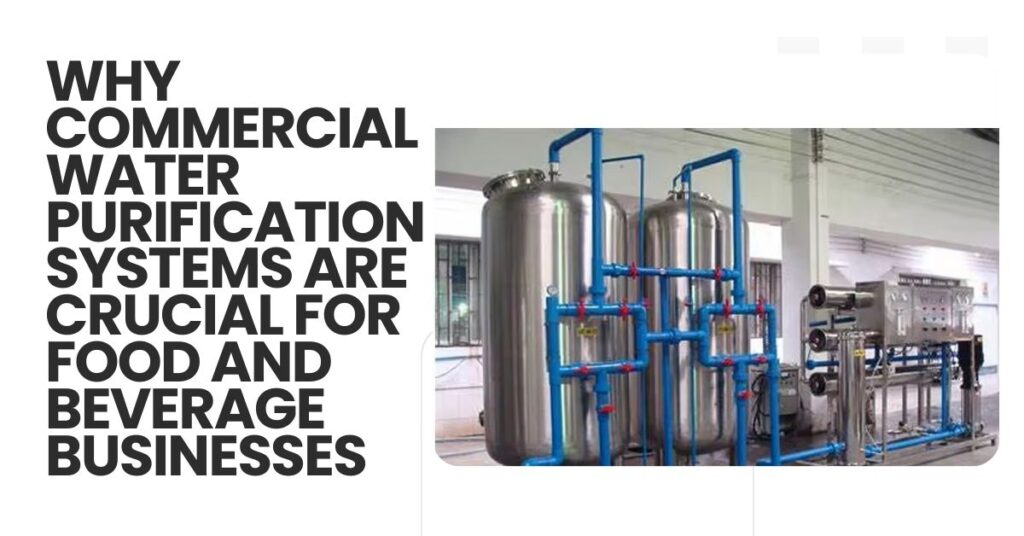Water is one of the most essential ingredients in the food and beverage industry. Whether it’s used for cooking, cleaning, or as a key element in the final product, the quality of water directly impacts the safety, taste, and consistency of food and beverages. That’s why having a reliable commercial water purification system is crucial for any business in the industry. In this blog, we’ll explore why these systems are so important and how they help businesses maintain high standards, ensure customer safety, and improve operational efficiency.
Note – Looking for reliable Commercial Water Purification Systems in Uganda? Ensure the safety and quality of your products with top-tier water purification solutions from Blackwood Hodge Power Services Ltd. Contact them today to find the perfect system that meets your business needs and complies with industry standards.
The Role of Water in Food and Beverage Production

Water plays a critical role in food and beverage businesses, from preparing ingredients to cleaning equipment. It is involved in almost every aspect of production, whether it’s used in cooking, mixing, or as an ingredient itself. For example, in the beverage industry, water quality can affect the taste, texture, and appearance of products like coffee, soft drinks, and bottled water. In the food industry, water quality is essential for washing vegetables, meat, and other ingredients and for cleaning kitchen equipment.
The quality of water used directly influences the quality of the final product. Poor-quality water can introduce contaminants, alter flavors, and even pose health risks. That’s why having a commercial water purification system is not just a luxury—it’s a necessity.
Benefits of Commercial Water Purification Systems
1. Ensures Safe and Clean Water
The primary reason businesses invest in water purification systems is to ensure the water used in production is free from harmful contaminants. Municipal water supplies, while generally safe for drinking, can contain various impurities, such as chlorine, heavy metals, bacteria, and other chemicals that could affect the taste and safety of food and beverages.
A commercial water purification system removes these contaminants and provides clean, safe water that meets industry standards. This is particularly important for businesses that deal with sensitive products like dairy, baked goods, or beverages where water quality is crucial for both taste and safety.
2. Improves the Taste and Quality of Products
For food and beverage businesses, taste is everything. Water quality directly affects the flavor of the final product. For example, if a brewery uses poor-quality water in brewing beer, it could introduce unwanted flavors or inconsistencies in the final product. Similarly, poor water quality can alter the taste of soft drinks, juices, or even soups and sauces.
By using purified water, businesses can ensure that their products taste exactly as intended. A commercial water purification system ensures that water is free from chlorine, metals, or other substances that could negatively impact flavor.
3. Meets Health and Safety Standards
Food and beverage businesses must comply with strict health and safety regulations. Using contaminated or subpar water can lead to serious health risks, including foodborne illnesses. A water purification system helps businesses meet these regulations by ensuring that all water used in food preparation and beverage production is free from harmful bacteria, viruses, and chemicals.
By investing in water purification systems, businesses can avoid health violations and protect their reputation. A reliable system can also provide documentation that proves water quality meets health standards, which is important during inspections or audits.
4. Enhances Equipment Longevity
Many kitchen and production equipment, such as coffee machines, dishwashers, and water boilers, rely on water to function efficiently. When water contains impurities like minerals or chlorine, these substances can accumulate over time and damage equipment. For instance, hard water can cause limescale buildup in pipes, boilers, and machines, leading to costly repairs or replacements.
A commercial water purification system can help prevent these issues by filtering out harmful substances that could damage equipment. This extends the lifespan of machines and reduces the frequency of maintenance and repairs, ultimately saving the business money in the long run.
5. Reduces Waste and Increases Efficiency
Many businesses use water for cleaning purposes, such as washing dishes, equipment, or ingredients. Poor-quality water can cause streaks, stains, or soap residue, leading to the need for additional cleaning steps or the use of chemical cleaners. This not only wastes time and resources but also increases operating costs.
A purified water system ensures that water is clean and free from impurities, which results in better cleaning efficiency. With fewer cleaning products required and less water wasted, businesses can save money and improve their overall operational efficiency.
6. Cost-Effective in the Long Run
While the initial investment in a commercial water purification system may seem significant, the long-term savings are considerable. By improving equipment lifespan, reducing the need for maintenance, and ensuring better product quality, businesses can recover the costs quickly. In addition, businesses can save on water treatment chemicals or expensive waste disposal fees for contaminants in water.
The reduction in operational downtime due to equipment failure or the need for extra cleaning also contributes to cost savings. In the end, a water purification system is a smart investment for businesses that want to maintain high standards without breaking the bank.
Types of Commercial Water Purification Systems
There are several types of water purification systems available for food and beverage businesses, depending on their needs and water quality. Some of the most common options include:
- Reverse Osmosis (RO) Systems: This is one of the most popular and effective types of water purification systems. It works by forcing water through a semi-permeable membrane to remove contaminants, including bacteria, minerals, and chemicals. RO systems are especially useful for businesses that need high-quality purified water, such as breweries, coffee shops, and bottling companies.
- Activated Carbon Filters: These filters are designed to remove chlorine, volatile organic compounds (VOCs), and other impurities that affect the taste and smell of water. They are commonly used in beverage industries where water flavor is critical.
- UV Water Purifiers: Ultraviolet (UV) light can kill bacteria, viruses, and other microorganisms in water, making it a popular choice for businesses looking to eliminate biological contaminants. UV systems are often used in combination with other filtration methods for optimal results.
- Water Softening Systems: Hard water, which contains high levels of minerals like calcium and magnesium, can cause scale buildup in equipment. Water softening systems remove these minerals and help protect machines from damage.
Conclusion
For food and beverage businesses, clean, safe, and high-quality water is essential for producing top-tier products and ensuring the health and safety of customers. Commercial water purification systems offer numerous benefits, from improving product quality and flavor to reducing waste and enhancing equipment longevity. By investing in a reliable water purification system, businesses can meet health and safety standards, increase operational efficiency, and ultimately protect their bottom line.
Whether you’re running a small café, a large-scale brewery, or a food processing plant, a water purification system is a smart investment that ensures your products are the best they can be. It’s not just about meeting regulations; it’s about providing the highest quality food and beverages to your customers, every time.
For more insightful articles related to this topic, feel free to visit newsmedialive.com
